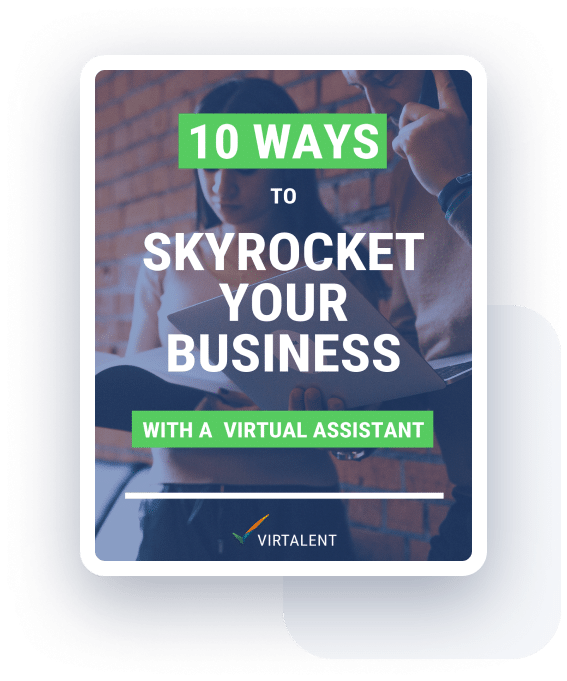Are you already a successful entrepreneur? You will already be familiar with the reality of starting a business in that case. It took a lot more time, money and commitment than you thought it would, right? Fortunately (though it certainly doesn’t feel like it sometimes!) the pressure and pace of the situation develops both your character and business acumen to an extent you had never experienced before.
But what would you say are the most common misconceptions your friends and family have about you as an entrepreneur? Its easy to be misunderstood when you try to do something so different from “the norm”. Here are Virtalent’s top 10 myths.
1. All successful entrepreneurs are bold innovators
It isn’t true that all new businesses are disruptive and born from new ideas dreamt up in the shower. In fact, most successful businesses are started by someone with a very specific problem they want to solve, in an industry they have a lot of experience in. They usually have existing contacts and a mature skill set relevant to the idea. Many simply choose to break away from their jobs and start something themselves; a lawyer growing a new Solicitor’s firm or a graphic designer starting a new marketing agency, for example.
2. They are risk-taking gamblers
Despite the inspirational quotes, the majority of successful entrepreneurs make a success of their idea by minimising their risks as much as possible. Saving up enough money from their existing job to live on before they launch a new idea, securing a few clients before going full-time and taking advantage of free resources (read: grants and training programmes) are all great ways to do this. Surprisingly enough, doing some proper market research on the idea is also a sound way to make sure you are launching a business which has a good chance at succeeding. How competitive is the market? What are you going to do that is 10x better than your competitors (i.e. enough to make loyal customers switch to your brand)? Can you actually make some money in the market?
Please don’t just sell your house and hope for the best!
3. Entrepreneurs are OBSESSED with money!
If you’re only focussed on making a quick buck, I guarantee you will fail. Growing a business takes time and the goalposts constantly move. Sometimes the journey can be pretty difficult and thinking of “how much money you will make” is not going to get you out of bed. Successful entrepreneurs focus on the impact their idea will eventually make in the market (or on the world!), on the great work-life balance they will eventually be able to maintain when they have grown their business to a decent size or, believe it or not, simply the enjoyment of your day-to-day work; pushing boundaries, solving problems and working under your own initiative. What happens when you make that million? You’ll want £2m, then £5m… and it goes on. I’ve yet to meet a successful entrepreneur who is motivated by money alone.
Pssst! And guess what? Statistically speaking, the average self-employed person could actually make more money by working for someone else.
4. Successful entrepreneurs hate working for someone else
The media portray entrepreneurs as lone wolves, striking out on their own after becoming fed up of their horrible, over-demanding boss. Yes, most entrepreneurs have a strong sense of independence and, yes, this means they would often prefer to work under their own steam. In fact many have indeed started their own business as they thought they could do better. However, it is simply not true that all entrepreneurs hate being told what to do and don’t want to follow someone else’s instructions. Many loved working in their previous job. Successful entrepreneurs work well in teams and recognise that there certainly are times when following instructions is necessary. Taking on investors? Following the advice of industry experts? Employing a professional MD? There are plenty of times when “working for someone else” may well be a necessary, yet positive reality.
5. Entrepreneurs just need to “hustle” their way to success
Of course, you need a lot of enthusiasm and persistence to grow a business, but I’m sorry to say that simply “hustling” isn’t going to get you anywhere fast and it certainly doesn’t scale. If only it was as easy as working long hours and acting like the Wolf of Wall Street. You need a solid, well-considered plan (though not necessarily a 60 page business plan) to give you focus and direction but, most importantly, the skills, resources and financial support to build your business. No matter how loud you shout or how many people you shout at, if your product sucks or you have no budget to test how to market the business efficiently then you may well be better off taking that position at your local used car showroom after all.
6. Most entrepreneurs are left-handed dyslexics
Starting a business isn’t easy, so it can be comforting to think that you are going to succeed because (unlike those that fail) you possess some kind of rare characteristic which will give you super-human powers. Perhaps you’ve proven you need less sleep than most people or maybe your traumatic childhood has made you extra resilient. In the same way, despite what you may have heard at last night’s inspirational keynote, not only has it been proven scientifically, but dyslexics or left-handed people are no more entrepreneurial than the rest of us and those “super-human” qualities you have dreamed of are unlikely to hold much substance either.
7. They don’t sleep or see their families
In reality, the most successful entrepreneurs recognise the impact that burnout has on their mindset and therefore their business. Its crucial to get enough sleep and eat well to feel sufficiently well-rested to solve problems, work well in a team, maintain a positive mindset and make sound decisions. If you aren’t sleeping or making time to socialise, I’m sorry to say it but your business isn’t being run efficiently, won’t scale and will certainly cause you to burn out. Running a business is a marathon and not a sprint!
8. But entrepreneurs can also take time off whenever they like
It may be true one day, but the vast majority of entrepreneurs are under a lot of pressure. With deadlines to meet and bills to pay, it isn’t true that they can simply take time off whenever they like. Just because they are the boss, it doesn’t mean they can stroll into the office at 10am and then disappear on holiday on a whim, just because they feel like it. With some proper planning and sound business processes, a good work-life balance is certainly possible, but entrepreneurs often have more constraints on their time than anyone else.
9. Entrepreneurship is a young person’s game
You may think the stories of the Colonel Sanders starting KFC at 66 are an anomaly and that, in reality, young Silicon Valley techies are the true entrepreneurs of today. In fact, the average first-time Founder is 40 years old. Does that surprise you? Of course, younger people are logically more comfortable with risks, as they often have a lot less to lose than someone who has built a successful career, especially one which maintains a wife, two kids and a mortgage. Yet research has shown that this is countered by an older person’s greater experience, resources, connections and self-awareness.
10. Successful entrepreneurs must pitch a la Dragon’s Den
Its easy to think that successful entrepreneurs have no choice but to pitch for investment, Dragon’s Den style, but this is simply not true. The vast majority of successful businesses are built on (mainly personal) debt and not equity financing, and banks are lending to more small businesses than you may have been led to imagine. And what if you don’t need financing at all? The best businesses have been so successful that they have simply grown by reinvesting the money their happy customers spend with them.
According to Guy Kawasaki, you are more likely to die from a fall in the shower than your start-up company will get VC funding (odds are 1 in 4000).







